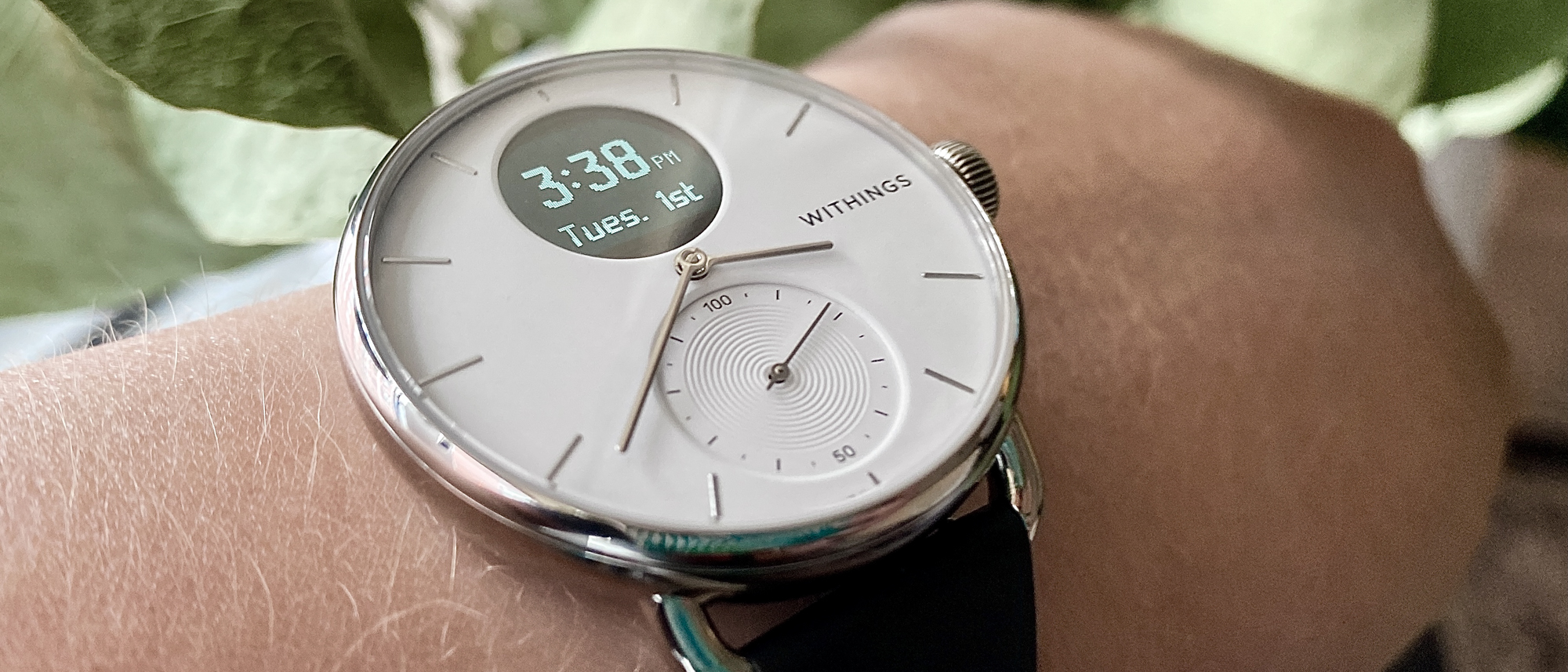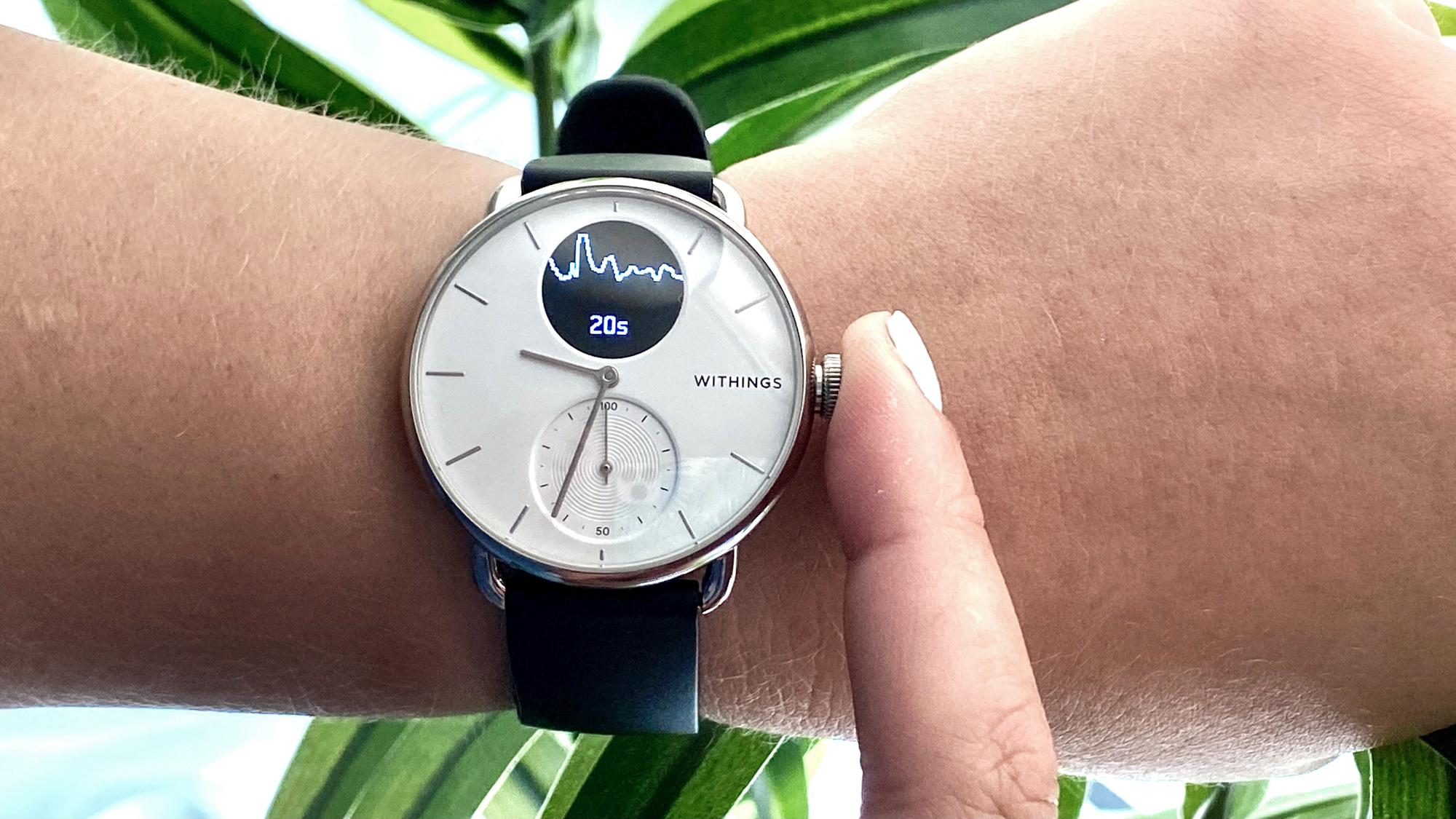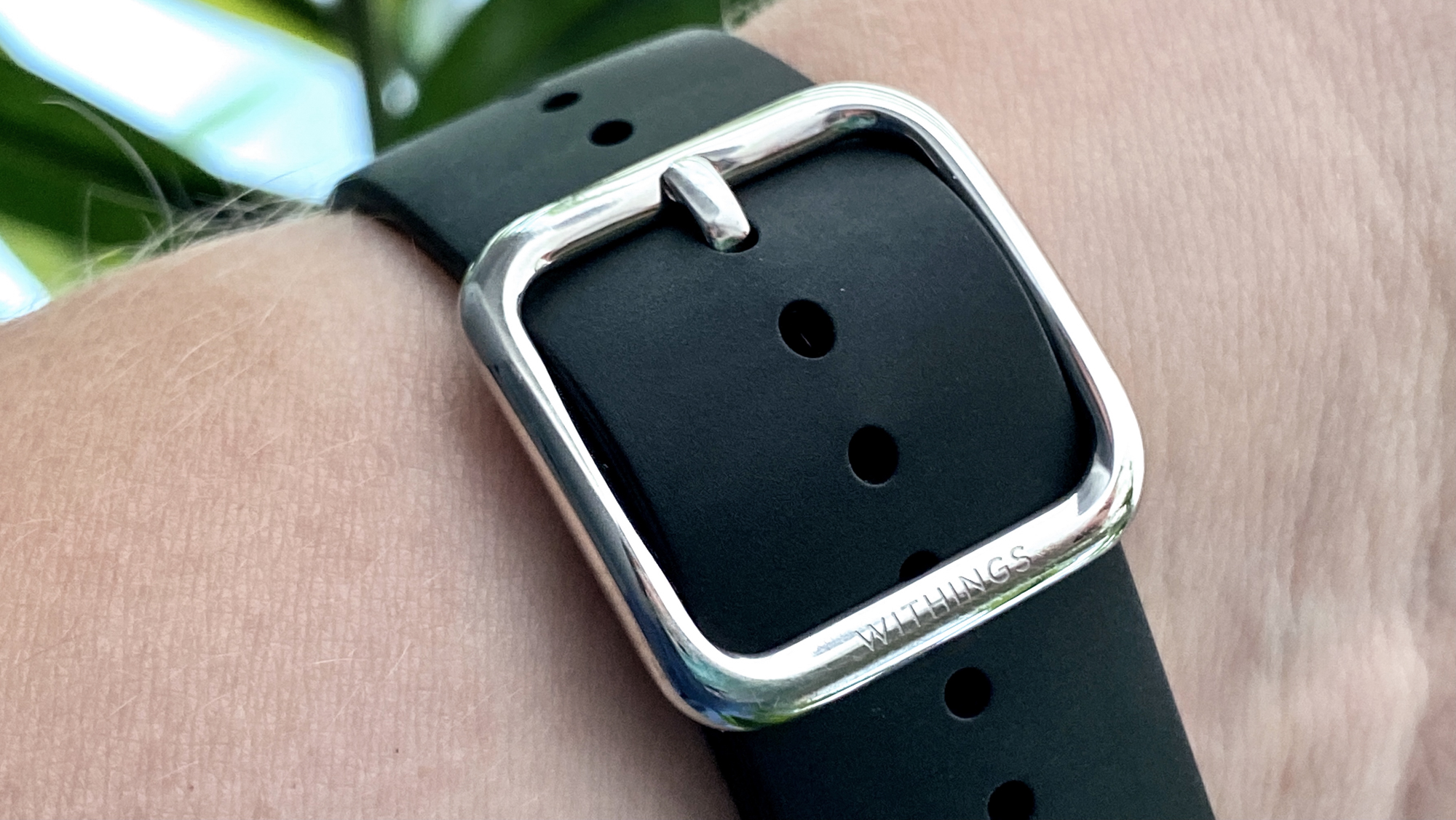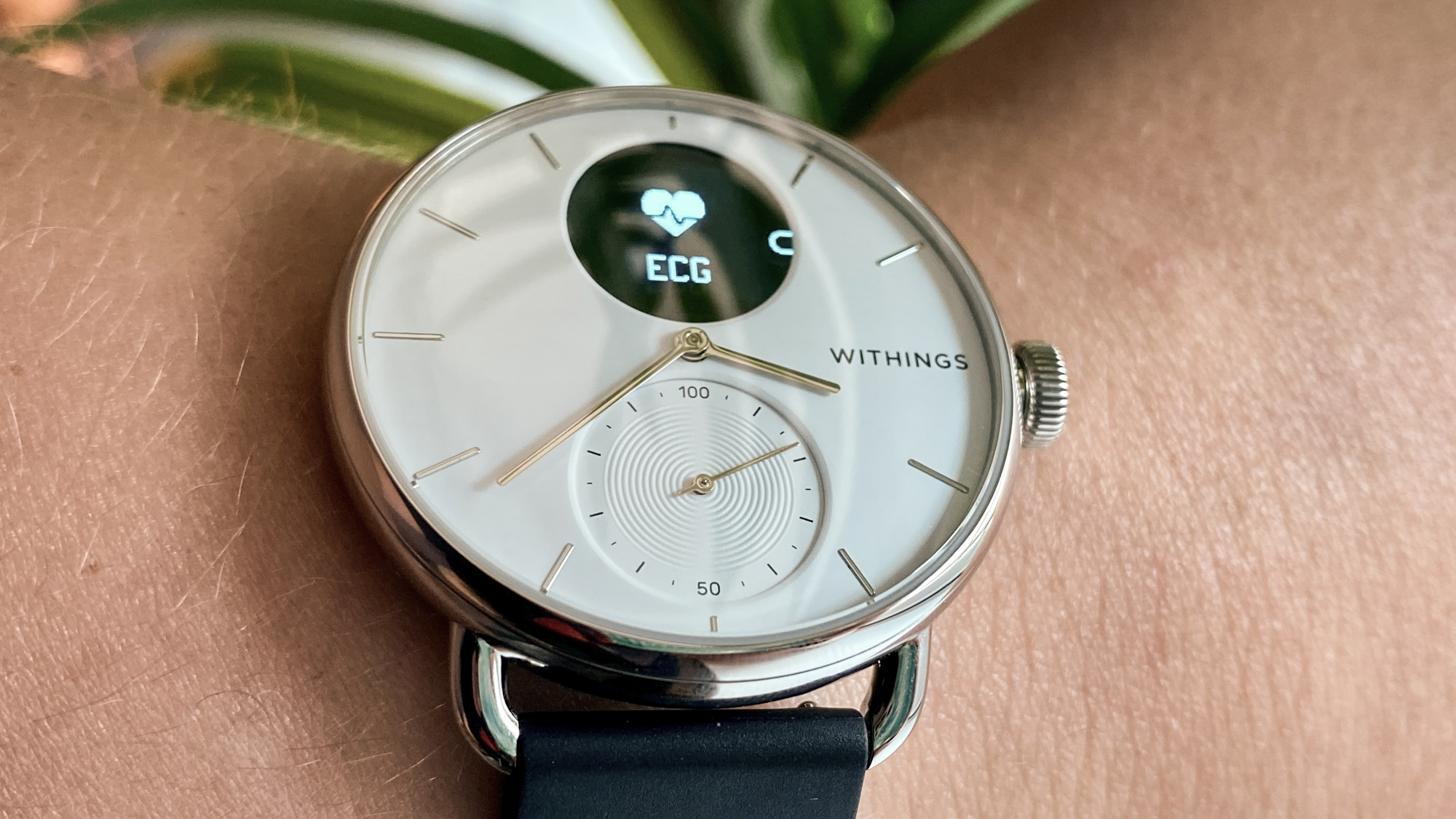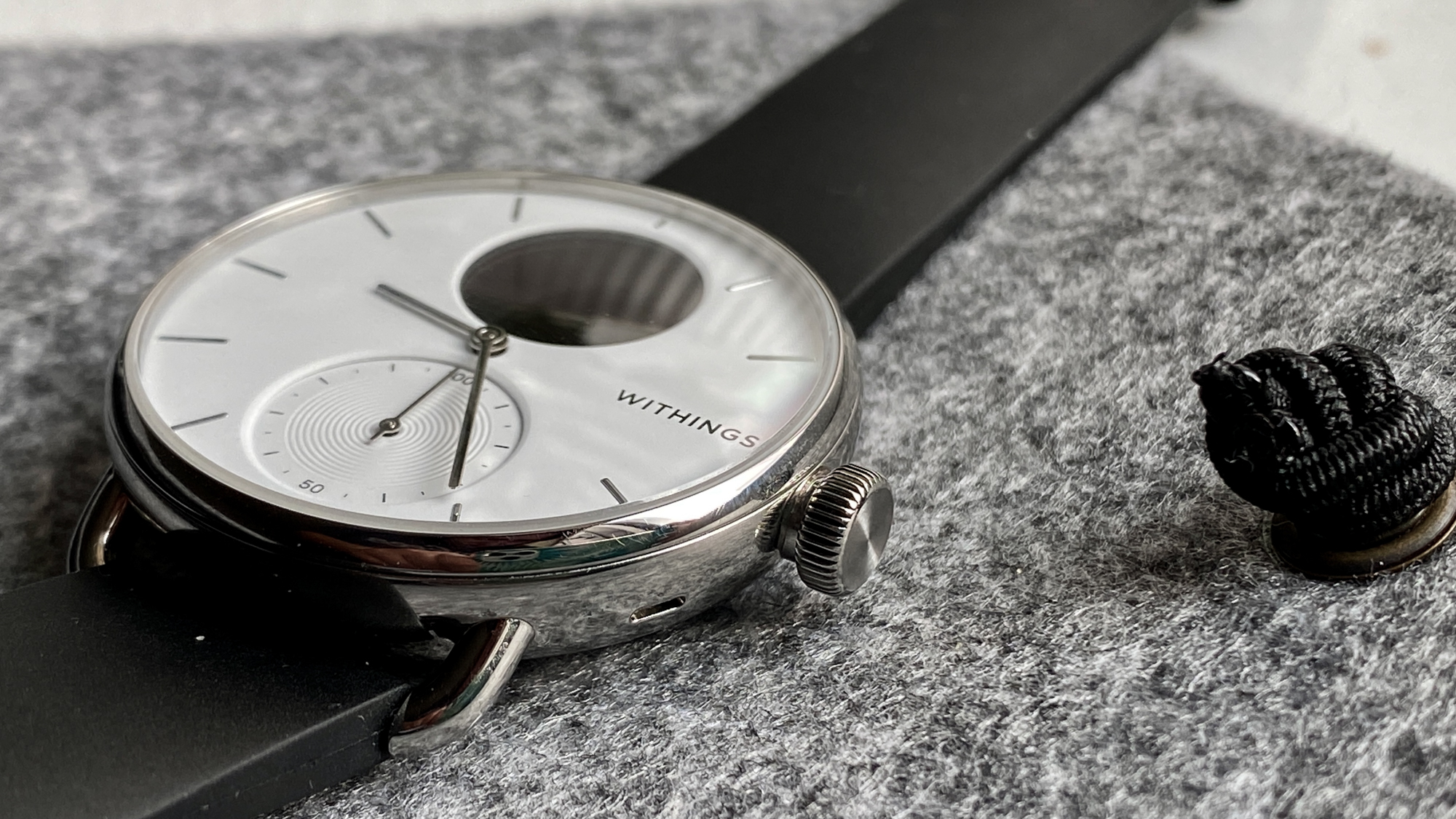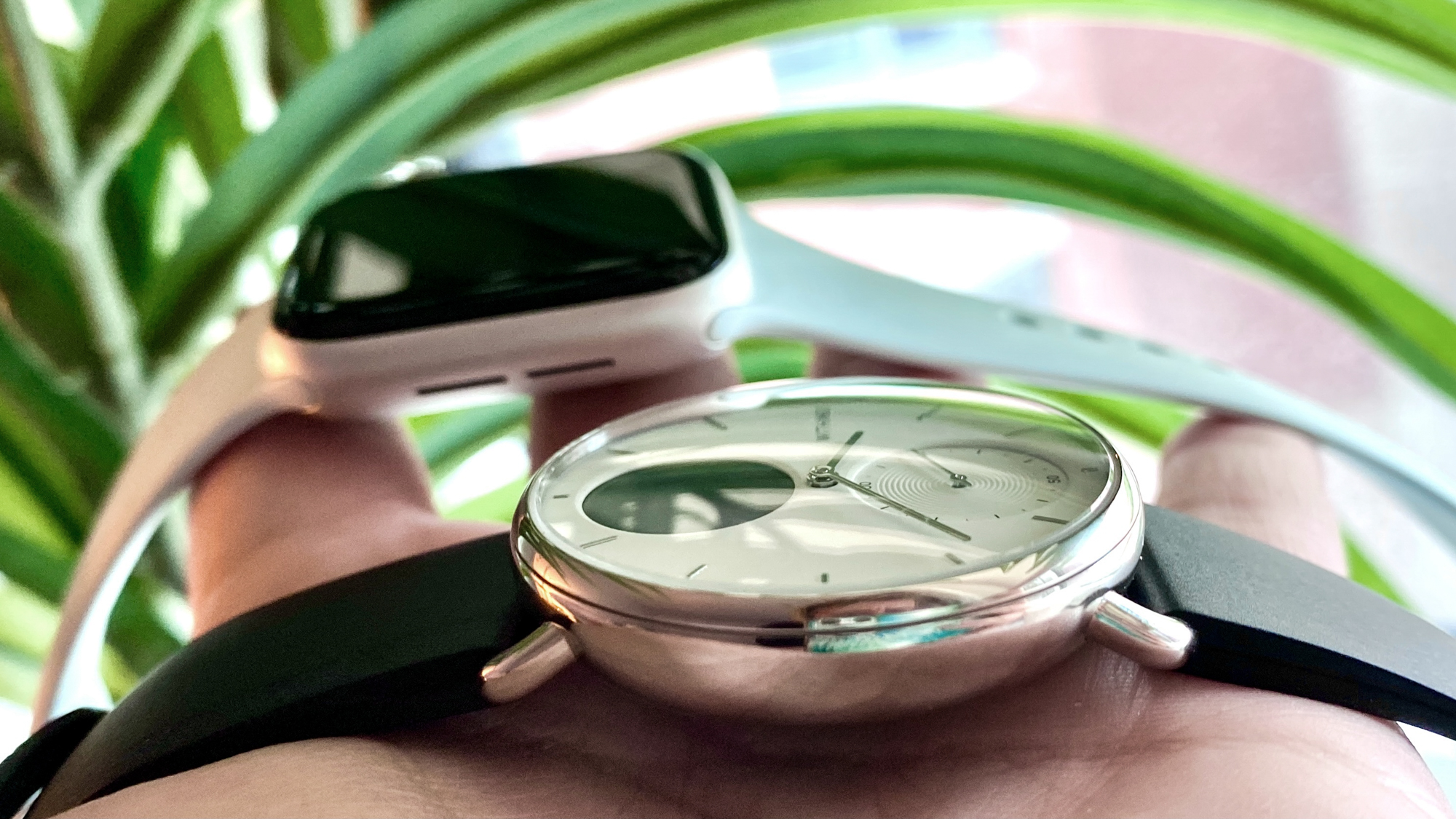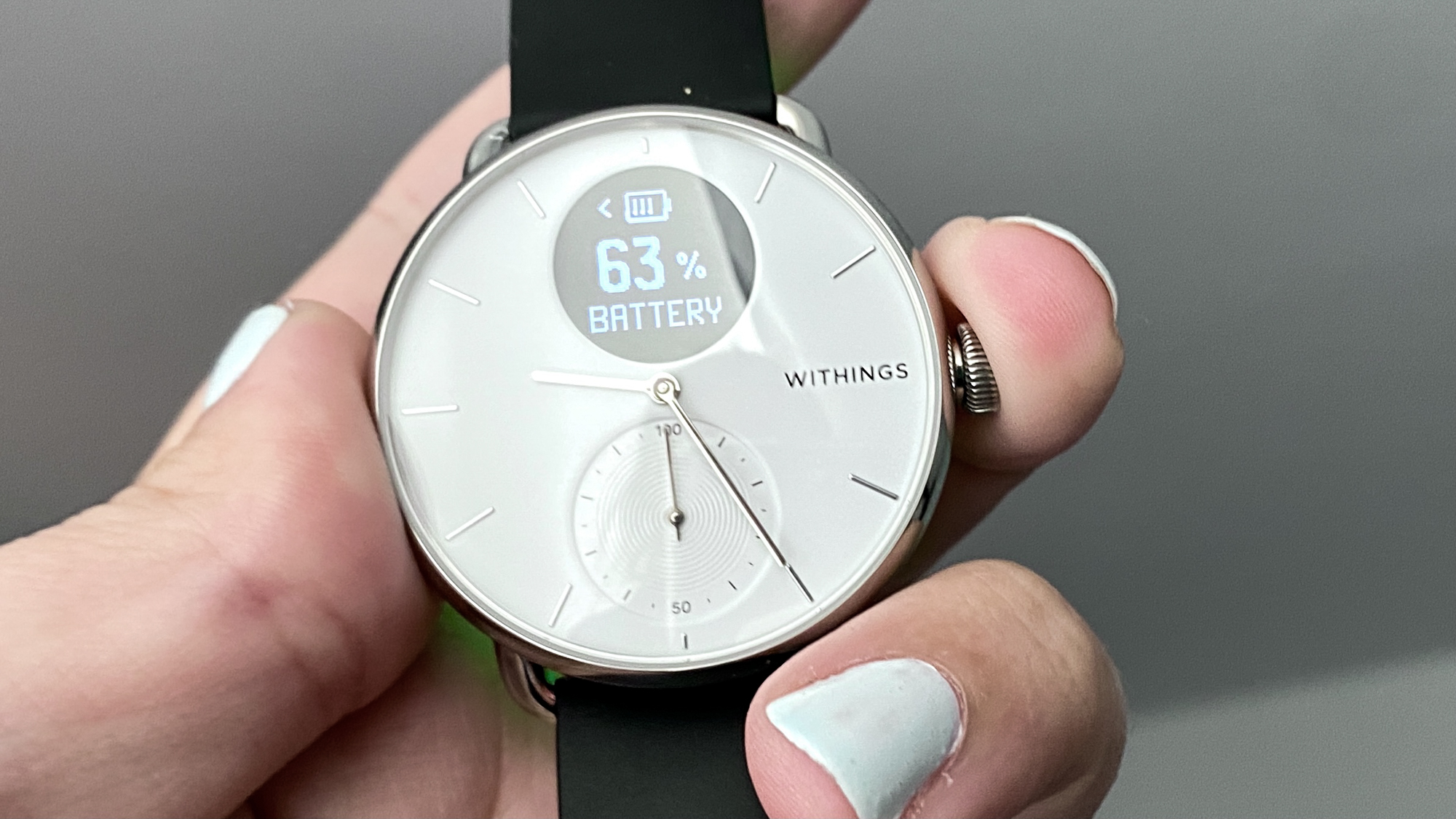Tom's Guide Verdict
The Withings ScanWatch ($279) is a promising hybrid smartwatch with proactive health tracking features like ECG and SpO2 monitoring.
Pros
- +
Slim, comfortable design
- +
Accurate sleep tracking
- +
30-day battery life
Cons
- -
No always-on display setting
- -
Watch hands can block display
- -
Expensive
Why you can trust Tom's Guide
Price: $279, $299
Sizes: 38mm, 42mm
Water resistance: 50 meters
GPS: No
Heart rate sensor: Yes
ECG sensor: Yes (pending FDA-approval)
Compatibility: iOS 12 or later, Android 8 or later
Battery life: 30 days
The Withings ScanWatch is the wellness company’s newest health-orientated, hybrid smartwatch. Though it looks like a classic, analog wristwatch, it’s actually a $279 medical-grade wearable capable of monitoring your heart rate, blood oxygen levels, sleep quality and activity. It even has a ECG reader for detecting signs of atrial fibrillation.
But Withings has not yet received FDA-approval for the ScanWatch’s ECG sensor. This process is holding it up from a U.S launch, although Withings was kind enough to send us a review unit to familiarize ourselves with the ScanWatch’s features.
This Withings ScanWatch review lets you know what you can expect once it’s more widely available, and if it has the potential to make it to our list of the best fitness trackers.
Withings ScanWatch price and availability
The Withings ScanWatch costs $279/€279 for the 38mm model and $299/€299 for the 42mm model. It’s available in European countries now.
Withings is awaiting FDA clearance for the ScanWatch’s ECG reader before announcing U.S. availability.
Withings ScanWatch design
The Withings ScanWatch maintains the design of the brand’s older fitness trackers. At first glance, it looks like a simple traditional timepiece, but a small display in the top center reveals information including steps, heart rate, SpO2 levels, smartphone notifications and other bits of data. A single side crown is used for navigation.
Get instant access to breaking news, the hottest reviews, great deals and helpful tips.
I like the ScanWatch’s merger of the conventional and complex, although I’ll admit it took me a day or two to refamilizare myself with reading an analog watch face. Luckily, the raise-to-wake display helped me by providing the time in a digital format. I do wish there was an always-on screen setting, though.
The ScanWatch’s straps are slim, comfortable and interchangeable, while the metal clasp feels strong and secure. The device is rated 5ATM for water resistance (up to 164 feet), and I wouldn't feel nervous about it falling off in a pool or ocean like I do my Apple Watch, despite the two having the same durability rating.
As an added perk, Withings includes a swanky felt carrying pouch for the ScanWatch. It’s not a lagniappe that’ll push you to pick the ScanWatch over the Apple Watch, but it sure makes you feel like you’re getting your money’s worth.
Withings ScanWatch fitness and health features
The Withings ScanWatch’s small display and lack of on-board GPS prevents it from being a better fitness watch than most offerings from Fitbit and Garmin. While you can launch a number of workouts from your wrist, you’ll need to use the crown to scroll through active metrics and your phone in Bluetooth range. Plus if you happen to be working out between the hours of 11 and 1, the longer watch arm will obstruct the screen. As was the case with the Withings Steel HR watch, it’s hard to read the display while moving, too.
No matter when you’re moving or sitting still, the Withings ScanWatch monitors your heart rate 24/7. It looks out for changes or irregularities, and will send you a notification when it thinks you should record an electrocardiogram (ECG). An ECG sensor can detect atrial fibrillation (AFib), an irregular heart rhythm that can be a sign of heart disease, just like the Apple Watch Series 4, Series 5 and, soon, the Samsung Galaxy Watch 3.
But unlike those category-leading smartwatches, the ScanWatch’s ECG reader is not yet FDA-approved. I could take readings on my review unit, but it doesn’t yet meet the government’s standards.
I like Withings Health Mate app (iOS, Android) more than Apple’s Health App. Rather than throw a bunch of metrics in your face, the app actually walks you what all your metrics mean before you can see them.
Withings ScanWatch sleep tracking
The Withings ScanWatch includes an SpO2 sensor for measuring blood oxygen saturation levels. The sensor detects when and how often you stop breathing during sleep. If multiple severe episodes are detected, the ScanWatch could assign a sleep apnea diagnosis.
When I wore the ScanWatch while catching zzz’s, it didn’t detect any breathing disruptions. But I have friends with sleep apnea who underwent tedious sleep studies in the care of a doctor before receiving an official diagnosis, and I can’t help but think the ScanWatch might have saved them some time.
Compared with Apple Watch sleep tracking, which I’ve been testing in recent weeks, the ScanWatch’s sleep analysis told me I slept almost the same amount of hours each night. In fact, my morning results for both the Apple Watch and ScanWatch were mere minutes apart. The ScanWatch, however, gave me a sleep score and a notes field on the app for keeping tabs on factors that might impact my sleep quality.
Withings ScanWatch battery life
Withings claim the ScanWatch can last up to a month on a single charge, which is leaps longer than Apple Watch's 18-day battery life, but not unusual for a fitness tracker with a limited display.
I haven’t worn the ScanWatch for a month yet, but after about 5 days of wear the battery on my unit is down to 65%. I’m interested to see how long it actually lasts, but for now I’ll simply enjoy leaving the charger at home when I go to the beach for the weekend.
Withings ScanWatch outlook
The Withings ScanWatch doesn’t claim to be the smartest smart watch or sportiest sport watch; rather, it’s coming on strong to a growing health-oriented wearable market with 24/7 heart rate monitoring, ECG readings, SpO2 detection and more. Nokia who, am I right?
We’ll give the ScanWatch an official rating when it becomes available in the U.S., which the company says should happen by the holiday season, pending FDA-approval for its ECG reader.

Kate Kozuch is the managing editor of social and video at Tom’s Guide. She writes about smartwatches, TVs, audio devices, and some cooking appliances, too. Kate appears on Fox News to talk tech trends and runs the Tom's Guide TikTok account, which you should be following if you don't already. When she’s not filming tech videos, you can find her taking up a new sport, mastering the NYT Crossword or channeling her inner celebrity chef.
